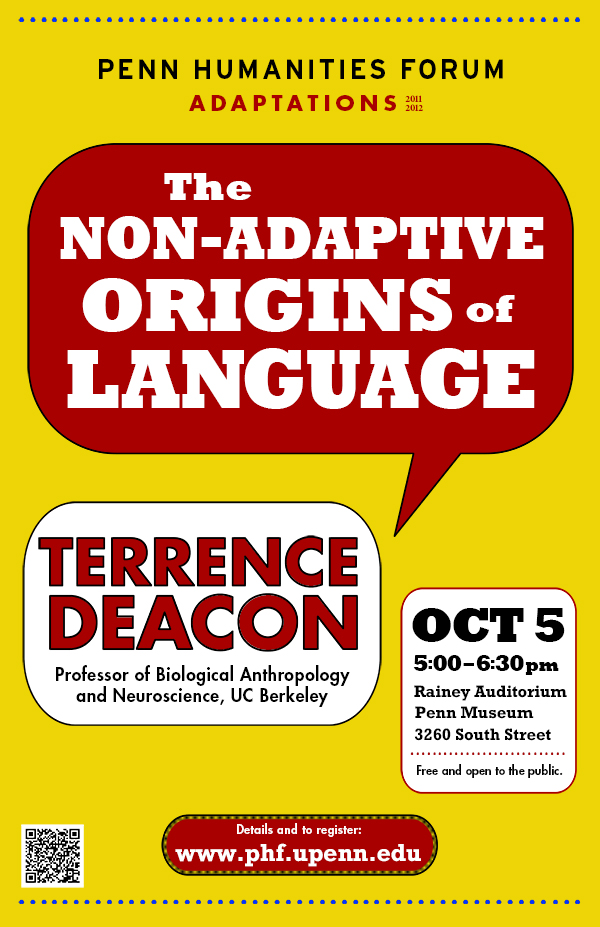It seems obvious that the human capacity for language is a result of adaptation, our biological nature adjusting to its social and cultural environment. But according to Terrence Deacon, the pioneering theorist of human brain development, this is not the whole story. In his latest work, Deacon argues that the emergence of language actually depended on a reduction rather than an increase of natural selection, and that it might never have occurred without the degeneration and loss of certain innate abilities.
Terrence Deacon is an American anthropologist whose work combines the fields of human evolutionary biology and neuroscience to understand the evolution of human cognition. He is the acclaimed author of The Symbolic Species: The Co-Evolution of Language and the Human Brain, a seminal study of how language itself was part of the process responsible for evolution. His latest book, Incomplete Nature: How Mind Emerged from Matter, offers a radical new approach to the riddle of consciousness. In other work, he helped devise the concept of the autocell as a way to answer the age-old question of how the realm of living creatures emerged out of the realm of physical forces and things. Most recently, Deacon was among those interviewed in the award winning documentary The Anatomy of Hate: A Dialogue for Hope, in which he explained the cognitive processes involved in acquiring the ability to hate.
Professor of Biological Anthropology and Neuroscience,
University of California, Berkeley



